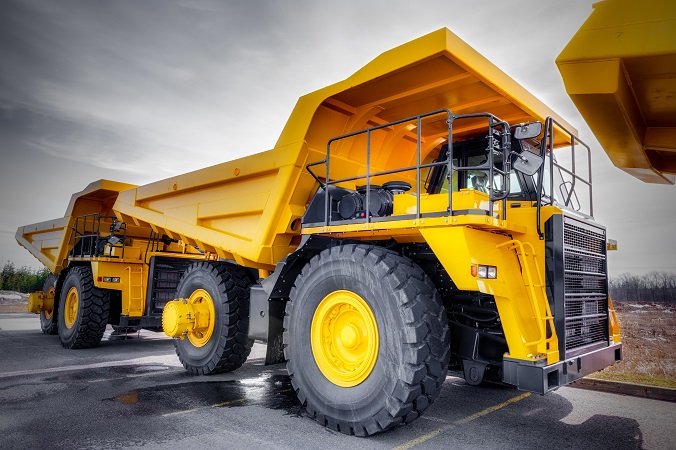The fleet is a transportation company’s biggest asset. If it is well-maintained, organized, and up-to-date, the company has a strong foundation that will help them serve customers reliably. At Talon Recruiting, we have seen some transportation companies falter because they didn’t have proper fleet maintenance management in place. Here are some reasons why this is important: 1.Improves Uptime Vehicle uptime is one of the most critical performance metrics for transportation companies. It indicates how much time a vehicle spends on the road or is working. Vehicles with excellent uptime bring in good returns on investment. If the vehicle experiences frequent downtime, you may want to retire it from service to save money. Fleet maintenance management helps improve uptime by ensuring the vehicles are well-maintained and in good repair. 2 Cuts Cost Regular maintenance helps technicians spot issues early and carry out repairs promptly. This ensures problems don’t have time to fester and cause more damage to your vehicles, which ultimately reduces repair or maintenance costs. Well-maintained vehicles can handle daily wear and tear better, soRead More
The oil and gas industry relies on several heavy machines. Some dig deep into the earth, while others pull material from the ground. All machines on an oil or gas site have the potential to cause serious harm to people working there. That’s why these sites must have a qualified safety engineer on hand at all times. A safety engineer is a trained professional who can make sure all equipment on-site lives up to the safety standards established by the industry. Here’s a look at why a safety engineer plays such a vital role in the oil and gas industry: 1. Checking All Equipment A safety engineer checks all equipment on-site to ensure it is safe for use. Most engineers aren’t directly involved in this checking and rely on individual team engineers to provide regular reports of inspections. They will make sure all checks are carried out on schedule, and nothing is alarming that requires attention. If engineers notice a problem, they will immediately schedule a more comprehensive inspection or request repairs. 2. Ensuring SafetyRead More
Every industry has a set of unique challenges and obstacles. The construction industry is no exception to this rule and suffers from issues like inflated costs, poor quality control and safety standards, and more. Experts in the industry have been looking for practical solutions to help them improve the situation as much as possible. Lean construction is one of the most effective strategies to help combat the various problems plaguing the industry. What is Lean Construction? Lean construction is a strategy or method of approach to designing a production system. It is used in all kinds of manufacturing environments, especially in construction. The goal of this approach is to limit the time spent on the project, maximize utilization of resources, minimize wastage, and ensure all investments are utilized properly. Project managers and construction companies develop strategies that will help them complete a project quickly and lower overall development costs. This methodology has three basic principles. It relies on concurrent engineering and design, which means the process method remains the same throughout the project. Lean constructionRead More
Manufacturing companies need raw materials to develop products. These raw materials often come from mines scattered throughout the world, which means there needs to be a proper supply chain to ensure companies never run out of stock. This supply chain is a complex entity that involves different organizations and teams. It is challenging to maintain order and ensure all supplies reach clients on time. Here’s a look at what’s involved in a mining supply chain and how it is managed: 1. Exploring Potential The first step is to find and explore potential mineral deposits. Companies will study geographical data, conduct aerial inspection, and examine the ground to identify potential mining spots. They will conduct an in-depth analysis after identifying potential spots by collecting mineral samples, testing them, and conducting environmental studies. This helps companies create a shortlist and find a site that will suit their supply demands. Once they have a few sites in mind, they will conduct a mineral deposit analysis. They will also explore other factors like environmental impact, market demand, current prices,Read More
The automotive industry has seen a lot of changes in recent years. Electric cars, autonomous driving, smart vehicles, better safety standards, and other such changes have had a significant impact on different automobile businesses. People who are in this industry need to be aware of the latest trends and keep their knowledge up-to-date, especially if they’re looking for a new job. Most businesses will ask questions about the latest developments in the industry during interviews to ensure employees have current knowledge. Here’s a look at some of the most critical trends in the automotive industry for 2020: 1. Focus on Customer Experience Modern customers are picky and spoiled for choice. They don’t settle and have access to ample information about different cars, brands, and models, which means you need to stay on your toes to attract customers. Focusing on customer experience is the best way to reach more people and get a wider customer base. Customer experience goes beyond the dealership and has started to influence everyday driving. People are looking for vehicles that deliverRead More






